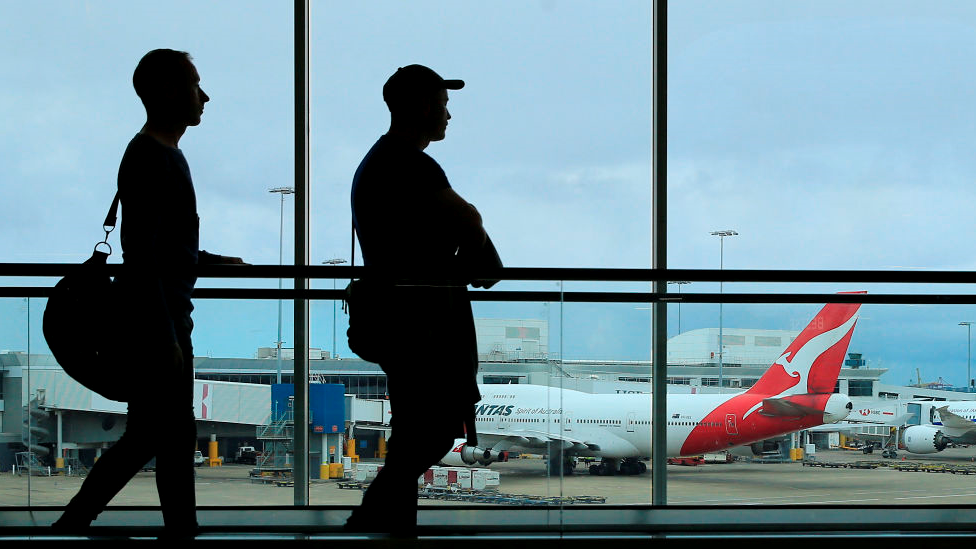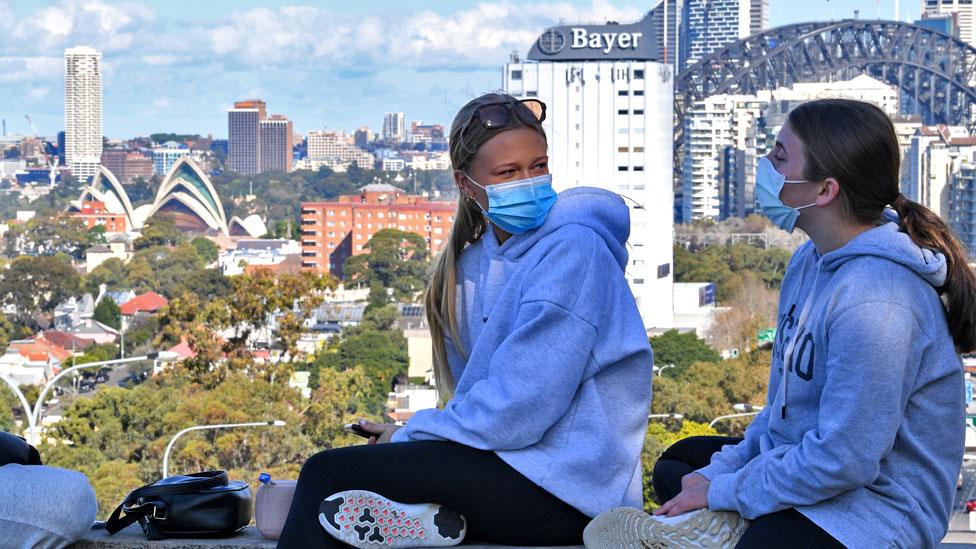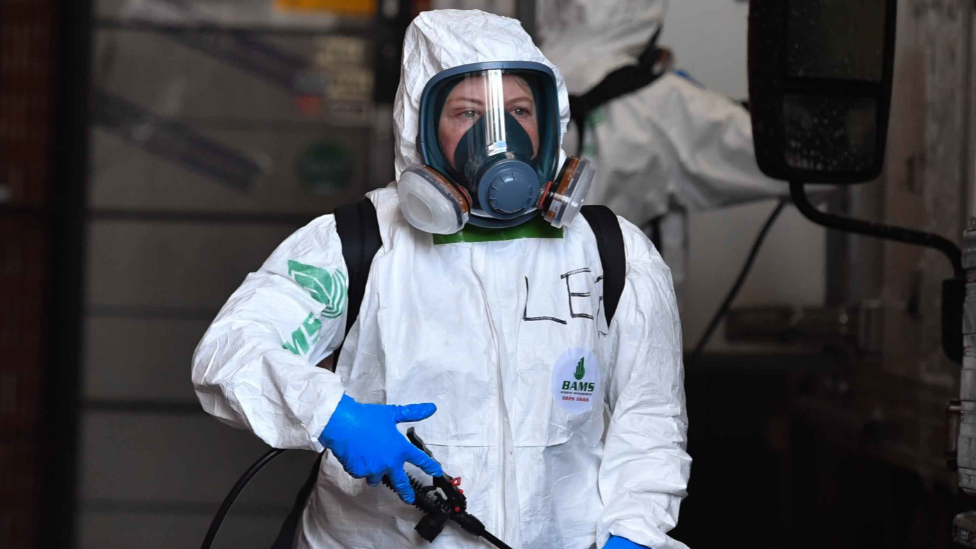Australia Covid: Police say Portman and Baron Cohen did not break lockdown rules
- Published

Police earlier held investigations into whether Natalie Portman had broken lockdown rules
Australian police have said that actors Natalie Portman and Sacha Baron Cohen did not breach lockdown rules, after photos emerged of them taking a boat ride on Sydney harbour.
New South Wales Police had earlier told the BBC that they were conducting inquiries after members of the public had raised concerns.
Police now say no further action will be taken against the two.
It comes as harsher Covid restrictions were announced for Sydney on Friday.
"Officers attached to Northern Beaches Police Area Command received information about a group on a boat on Monday 5 July 2021, potentially breaching Public Health Orders (PHOs)," NSW police said in a statement.
"Police have reviewed the information and confirm the activity, and the number of people in the group, complied with the PHOs in force at that time. There will be no further police action taken."
According to Sydney's stay-at-home order, people should only leave their homes for essential reasons.
Australia's largest city has been in lockdown since 26 June to combat a 400-case outbreak of the Delta variant.
But the case rate has continued to climb, officials say, partly because of people breaking the rules.
Paparazzi shots published by The Daily Mail showed Baron Cohen, Portman and her husband, choreographer Benjamin Millepied, on a boat ride on Sydney Harbour.
Before Friday, people were allowed to gather outside in groups of 10 but only for "essential" exercise.
Portman and Millepied have been in Sydney since January for filming commitments. Baron Cohen and his Australian wife Isla Fisher also entered the country last year.
Since March 2020, Australia has shut its borders to almost all foreigners in a controversial policy that has also prevented citizens and family members from entering the country.
However, it has granted entry permits to thousands - including dozens of celebrities, sports players, and business people. Those exemptions have sparked public outrage.
In June, Sydney residents talked about the city going into lockdown
On Friday, police increased their lockdown patrols, sending 100 extra officers to affected virus suburbs in Sydney's south-west.
However locals criticised the stronger police presence in the poorer and more ethnically diverse suburbs - arguing that police weren't deployed to Bondi, and the more affluent areas of Sydney when the virus emerged there in mid June.
Authorities have strongly denied accusations of discrimination.
New South Wales reported 44 new cases of the Delta variant on Friday, all in its state capital Sydney.
Despite two weeks of lockdown, the case rate has continued to rise with transmission across households.
Premier Gladys Berejiklian warned that locals were facing "the biggest challenge" since the pandemic started.
With more than 90% of the population unvaccinated, authorities have been forced to try and contain the Delta spread by putting the city into lockdown.
Ms Berejiklian flagged that the continued rise in cases suggested the city's lockdown would have to be extended past the 17 July deadline set earlier this week.
She said there needed to be a "drastic turnaround" in case numbers.
"Until we get to zero or close to zero, we cannot ease restrictions," she said.
Ms Berejiklian also rejected the idea that authorities might give up on trying to eliminate the virus altogether. The population's vaccine rates were too low, she said.
"If we chose to live with this while the rates of vaccinations are at 9%, we will see thousands and thousands of hospitalisations and deaths," she said.
Sydney's lockdown and Delta outbreak scares in various other cities last week have sparked criticism of federal authorities. Many blame Prime Minister Scott Morrison's government for a slow vaccine rollout.
Australia's programme began in February when the nation had very few cases. But the rollout was held up by supply problems, public complacency and hesitancy over the side effects of the AstraZeneca jab.
Reporting by Frances Mao
Related topics
- Published2 July 2021

- Published7 July 2021

- Published30 June 2021
